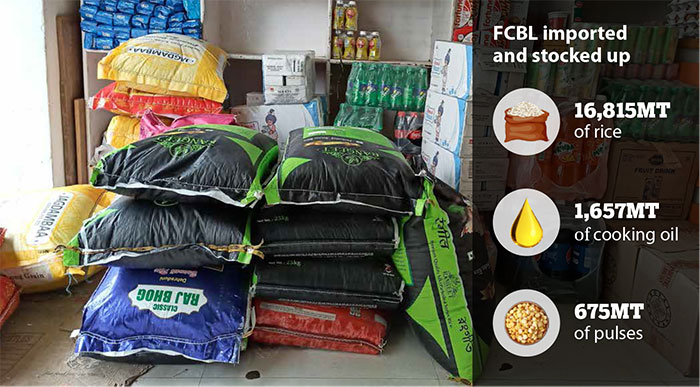Rajesh Rai | Phuentsholing
It has been about a week since the government has stopped the import of rice, cooking oil and pulses.
Retailers have to buy from the Food Corporation of Bhutan Limited (FCBL) and other wholesale dealers in the country.
The government took this decision as a temporary measure because there was a huge stock of essentials to last at least for six months.
Along with FCBL, 16 wholesalers and large retailers had stocked the essentials. The wholesalers were also provided concessional working capital to stock up.
Sources said that the decision was not a formal directive and that it was rather an advice to manage the stocks in the country. The economic affairs ministry had advised not to import because there already was excess stock of rice, oil and pulses in the country.
FCBL’s CEO Naiten Wangchuk said the corporation was not importing the essentials.
“If we keep on importing, there will be more damage and loss. We have to manage our stock.”
As per the government instruction, FCBL imported and stocked up 16,815 metric tonnes (MT) of rice, 1,657MT of cooking oil and 675MT of pulses. Today, the corporation is left with 11,188MT of rice, 1,537MT of oil and 617MT of pulses.
An official with UT Trading, a wholesaler in Phuentsholing, said stocks in Phuentsholing had decreased.
“But the stock in Thimphu and Samdrupjongkhar is still there.”
UT Trading imported a total of 287MT of rice to last six months. The dealer has a stock balance of 54MT. It imported a total of 68.8MT cooking oil and is left with a stock balance of 12.4MT.
The company incurred slight loss due to infestation on rice, the official said.
Tamshing Enterprise in Phuentsholing had imported about 500MT of rice. However, 80 percent of all the stocks of rice, oil and pulses have been sold. Proprietor Sonam Rinchen said the rate of rice decreased drastically in India after the Bhutanese traders procured huge stock of the essentials.
“We imported 25kg SK Gold rice at Nu 800 across the border. Its price had decreased to Nu 100 per bag,” he said, explaining that the situation impacted sales among the 16 wholesalers.
Sonam Rinchen said there was no room for complaints and sold them at cheaper rates in Bhutan.
Further, he said that there was a shortage of boiled rice. Government could allow import of boiled rice, he added.
However, the decision took the retailers in Phuentsholing and Samtse by surprise. They say the price offered by the FCBL and other dealers was higher. Many, though, have enough stocks.
A grocery owner in Phuentsholing, Lungten Wangdi, said that his customer base was not affected.
“This is because the rate we provide is cheaper. And I have a stock to last for another two weeks.”
Retailers imported a 25kg bag of SK Gold rice at Nu 600 to Nu 700. This same rice brand was bought at Nu 800 when FCBL and other wholesalers were stocking up.
Lungten Wangdi said that he was ready to buy from FCBL. The price at the retail level though could increase automatically.
Shivaraj Ghalley, a shopkeeper in Gola Bazaar, Samtse said that he couldn’t understand the government’s decision to not import the essentials.
“FCBL imported when the rate was higher.”
If retailers bought from FCBL or other wholesalers, the customers would be at the receiving end, he added.


